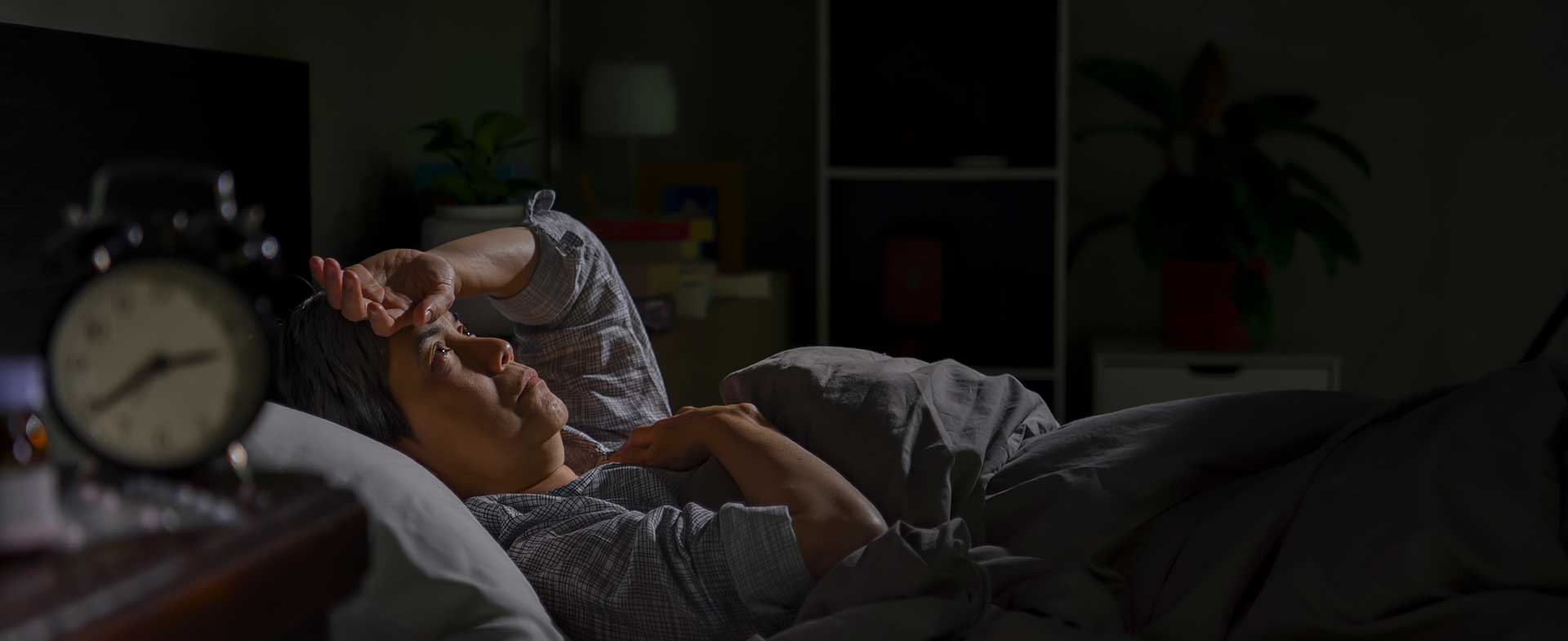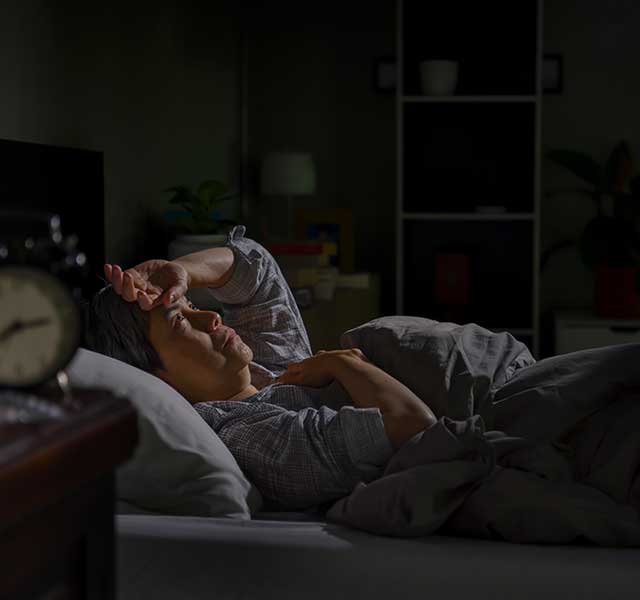Is this happening to you? You have no trouble falling asleep at bedtime, but come 1 a.m., you’re wide awake, staring at the clock. It’s called middle-of-the-night insomnia, and it’s frustrating.
According to Philip Cheng, Ph.D., clinical psychologist and research scientist at the Sleep Disorders Center at Henry Ford Health, our expectation of sleeping in one single bout may be a relatively recent phenomenon.
“There is historical evidence from the late 17th century, collected by a historian named Roger Ekirch, that shows people used to sleep in two bouts, with a period of wakefulness in the middle of the night,” explains Dr. Cheng. "Before electricity was invented, activity was significantly limited after sunset, so people would sleep. The recommended sleep duration for healthy adults is between 7 to 9 hours, but without the presence of electricity, we would actually be in darkness for 10 to 15 hours. So, there is a disconnect between how much sleep we need and how much darkness there is.”
Now that we have access to light in the evening, we have extended our waking hours and consolidated our sleep into one long bout. However, a range of difficulties – anything from shifting hormones to a snoring bed partner to a stressful day at work – can give rise to middle-of-the-night wake-up calls.
Sick and tired of tossing, turning and staring at the clock in the middle of the night? Read Dr. Cheng’s do’s and don’ts to sleep more soundly:
DON’T
1. Stay in bed. You might think spending more time in bed will boost your odds of catching extra shuteye. Actually, the opposite is true. You can’t will yourself to sleep (just like you can’t will yourself to be hungry). A better bet: Get up, go to a different room and do something calm and relaxing. Then, wait until you’re sleepy again before returning to bed.
2. Watch the clock. Counting how many hours you’ve slept—or how many more you have until you need to wake up—will only add to your stress. The more worked up you get, the more difficult it will be to fall back to sleep.
3. Turn on your devices. Once you are up and out of bed, it can be tempting to watch YouTube videos on your phone or catch up on work emails. However, using electronics near your eyes (e.g., phones, tablets, laptops) can interfere with your body’s natural clock, making sleep more difficult.
4. Work. Ideally, you don’t want to do anything that reinforces middle-of-the-night wakefulness. Avoid work, chores, or hobbies – anything that could serve as a reward for waking prematurely and become a habit.
5. Use caffeine in the late afternoon. Caffeine may help you wake up in the morning, but avoid taking a hit in the afternoon. Caffeine can linger in your system for up to 8 hours, making sleep more restless.
6. Use alcohol as a nightcap. Although alcohol can have a depressant effect and make you feel sleepy, it ultimately interferes with sleep. When alcohol is metabolized, it actually has an alerting effect that can lead to middle-of-the-night awakenings.
DO
1. Watch mindless TV. It may seem counterintuitive if you’ve heard the advice to shut down screens before bedtime, but if you can’t sleep, feel free to go to the living room and turn on the tube. Because the television screen is generally placed at a distance from your eyes, its effect on your circadian rhythms is much weaker. Spending a half hour watching a mindless sitcom, even one you’ve seen previously, can help you pass the time until you feel sleepy again.
2. Stick to a schedule. Our bodies function best when we maintain the same sleep and wake times—even on weekends. If you happen to wake up in the middle of the night, avoid napping the next day so you’re tired at bedtime.
3. Read a book. Paging through a pleasant--but not engrossing--novel can help lull you back to sleep. Just don’t turn on your tablet or e-reader or open up a heart-pounding thriller. The idea is to select something you enjoy but that you can easily put down, and that doesn’t emit bright light.
4. Create white noise. If you’re a light sleeper, unexpected noises—a furnace clicking on, a barking dog, a loud neighbor—can wake you up. Even a bird singing at dawn can rouse you prematurely. The solution: Amplify background noise. The low continuous hum of a fan or noise machine can help drown out disruptions.
5. Practice stress reduction techniques. Relaxation exercises before bedtime or when you find yourself wide awake in the wee hours can help your mind wind down. A few techniques to try: mindful meditation, yoga, deep breathing and writing in a gratitude journal. Still stressed out? Consider seeking help from a mental health professional.
What To Do If The Above Strategies Don't Work
- Are you waking up three nights (or more) each week?
- Does it take longer than 30 minutes for you to fall back to sleep?
- Have you been waking in the middle of the night for at least 30 days?
If you answer yes to these questions, it may be time to see a sleep specialist. Together, you can devise a plan to ensure you get the sleep you need.
If you have sleep concerns, or if you’ve been struggling from insomnia or daytime sluggishness, make an appointment with a sleep specialist. Call (800) 436-7936 or visit henryford.com/sleep to learn more.
Dr. Phillip Cheng is a clinical psychologist and sleep research scientist with Henry Ford Hospital in Detroit.



